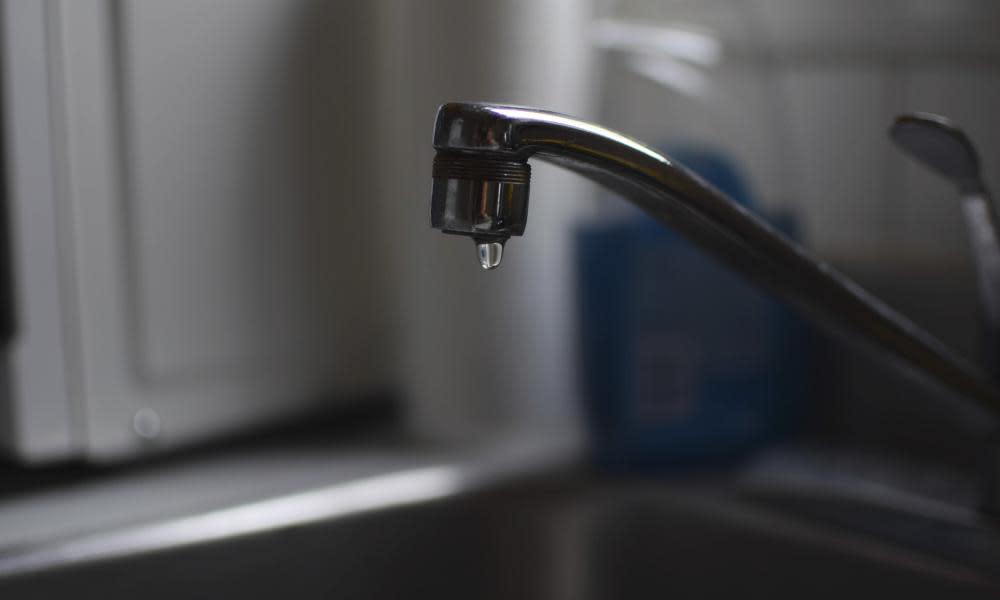Water insecurity causes psychological distress for Americans, study finds

Unaffordable water bills and the threat of disconnection causes significant psychological distress for Americans, according to a new study.
A Guardian investigation into 12 American cities found the price of water and sewage increased by an average of 80% between 2010 and 2018, with more than two-fifths of residents in some cities living in neighborhoods with unaffordable bills.
Related: ‘We’ve always known ours was contaminated’: the trouble with America’s water
The study, published in the Journal of Public Health, is the first to also examine and reveal the relationship between water insecurity and psychosocial distress in the US, where millions of households are disconnected each year because of overdue bills.
Researchers surveyed residents from a low-income neighborhood in Detroit, Michigan, where at least 141,000 have been disconnected since the city filed for bankruptcy in 2014 as part of a widely condemned debt collection policy targeting mostly poor black residents.
Overall, water insecurity was significantly linked to psychological distress, the study found. The mental health impact was greatest among people who had recently received a shutoff notice. Residents who had previously been disconnected, and those who felt bills were unaffordable also reported psychological distress.
“Water is vital to health, of course, but also to human dignity. For the world’s wealthiest country to be segregating access, it takes a toll. We’re only beginning to appreciate the level of water worry that poor people in this country carry,” said Nadia Gaber, lead research from the department of anthropology, history and social medicine at the University of California San Francisco.
In addition, in the previous two years more than 80% of respondents reported having drank water that may have been unsafe and/or borrowed or shared water with a friend or family member. Three-quarters of respondents worried about having their children removed by authorities due to a water shutoff, while almost 60% reused water for household tasks.
The small study adds to the evolving body of evidence about the mental health consequences of so-called “water worry” that results from unaffordable bills and the collapse of services following natural disasters.
Even before the coronavirus pandemic caused widespread economic misery, millions of ordinary families were facing unaffordable bills for running water, a Guardian series found earlier this year. Now, advocates fear that the fallout from Covid could lead to a huge rise in families unable to afford their water bills amid unprecedented job losses.
“The pandemic has brought the level of structural neglect in our society to light, and at the heart of that is access to clean water – this brewing crisis many Americans are just beginning to realize,” added Gaber.
The Guardian’s investigation exposed the painful impact of America’s expanding water poverty crisis as aging infrastructure, environmental clean-ups, changing demographics and the climate emergency fuel exponential price hikes.
Nowhere has the unfolding affordability crisis hit harder than Detroit, where water rates have increased by up to 400% in the last 20 years. Almost four in 10 Detroit residents live in poverty, the highest rate among the 20 largest US cities.
The UN described the mass shutoffs as “contrary to human rights” and condemned the disproportionate impact on African Americans, who account for 80% of the city.


